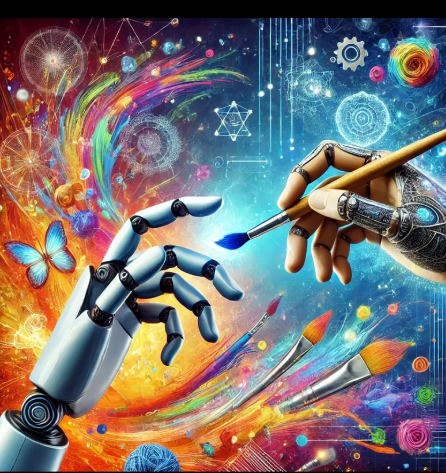AI in Marketing: Trends You Can’t Ignore Heading Into 2027
The world of marketing is undergoing a transformation unlike anything we’ve seen before. Artificial Intelligence (AI), once a futuristic concept, is now at the core of many successful marketing strategies. As we look ahead in future 2027, it is clear that marketers who embrace AI will have a competitive edge while those who may not struggle wont make up. In this blog, we’ll explore the key AI-driven marketing trends that are shaping the future and how the businesses can prepare for the revolution in coming decades.
1.
Hyper-Personalization at Scale
In traditional marketing,
personalization meant using a customer's name in an email or suggesting similar
products. But with AI, personalization is becoming deeply contextual and behavior-driven now some days. By 2027, AI
will be enable the brands to create real-time and highly personalized
experiences across websites, emails, social media and ads.
AI-powered
tools will be able to analyze a customer's browsing behavior,
purchase history, time of day, and even mood to deliver content that feels
tailor-made. Let us Imagine an online store that changes its homepage for every
visitor that is offering a unique layout, unique language and product
recommendations separately for each different user. That’s where we’re headed.
2. Predictive and Prescriptive Analytics
Data
is everywhere, but turning it into meaningful insights and information is where
AI shines. With predictive analytics, marketers can forecast the customer behavior, such
as when someone is likely to make decision buy or engage. Tools such as Salesforce Einstein, Adobe
Sensei, and HubSpot’s AI modules are
already being used to anticipate customer needs.
By
2027, we’ll see a shift from predictive to prescriptive analytics AI won’t just tell marketers what might
happen , but it will suggest what action
to take and even automate the process. For example, if a customer is likely to
unsubscribe, the AI might trigger a discount email or suggest a loyalty reward
in real time.
3. AI-Generated Content and Creative
Content
creation is no longer just a human task. Tools like ChatGPT, Jasper, and
Copy.ai are also enabling marketers for producing blogs,
social media captions, ad copy, and emails in seconds. By 2027 AI-generated
content will become more emotionally
intelligent by using tone and language that better connects with the
target audience.
Moreover,
platforms like MidJourney and Runway ML
are creating visual content from product mockups to videos driven entirely by
text prompts. This means faster creative cycles and more testing options,
giving marketers a huge advantage in running A/B campaigns and localized
content.
4. Voice and Visual Search Optimization
Consumers
are increasingly using the voice assistants like Alexa, Siri, and Google
Assistant to search for products or services. At the same time, platforms such
as Pinterest and Google Lens are making visual search more powerful. AI is at the center of both.
As
we approach 2027, SEO strategies
will need to evolve. Marketers must optimize content not just for
keywords, but for natural language queries and image-based searches. For
example, instead of typing “best running shoes,” users might say “What are the
best running shoes for flat feet under £100?” AI can help marketers structure
content to answer these specific, conversational queries more effectively.
5. AI in Influencer and UGC Campaigns
Influencer
marketing is booming, and AI is making it smarter. Instead of manually
searching for influencers, brands can now use AI platforms to analyze engagement rates, audience
demographics, and authenticity. These tools can identify the best
creators for a specific campaign, even suggesting the type of content that
performs best.
Additionally,
AI is helping brands for managing and
leverage user-generated content (UGC). It can
automatically tag, sort, and analyze UGC to determine what drives the most
engagement and when to repost it for maximum impact.
Final
Thoughts
AI isn’t
just a tool for marketers but it’s becoming a strategic partner. As we approach
2027, brands that adopt AI thoughtfully and ethically will lead the way in creating
impactful, personalized and efficient marketing experiences. Whether you're a
startup or a global enterprise, now is the time to start investing in AI
technologies and skills.






Comments
Post a Comment